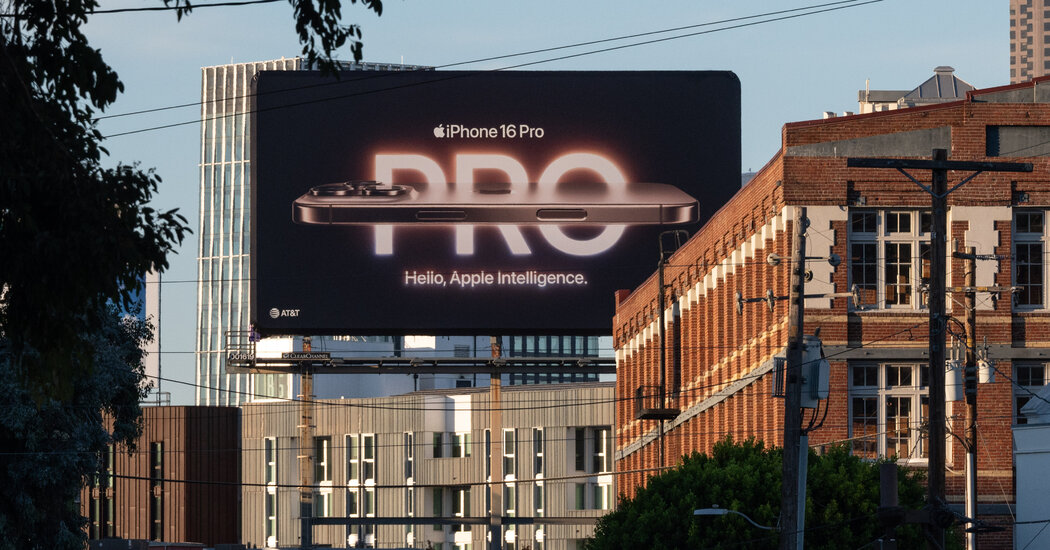Sales for the iPhone maker were up 4 percent to $94.9 billion. But a $14.4 billion tax bill cut profits that would have topped expectations.
Over the past month, Apple blanketed television with commercials about how its newest iPhone had exciting artificial intelligence capabilities even though the company was still working on many of the features it was pitching.
But Apple’s delay with A.I. didn’t cut into profits. Regulators did.
On Monday, the tech giant said sales of iPhones, iPads and subscription services like Apple Music had helped the company increase its quarterly revenue by 6 percent to $94.93 billion during the three months that ended in September.
The increased revenue didn’t translate into profit gains because Apple, which lost a court case in September, was forced to pay the European Union $14.4 billion in unpaid taxes. The one-time payment reduced its quarterly profit by 36 percent to $14.74 billion.
The results exceeded Wall Street analysts’ expectations for $94.58 billion in sales and, excluding the one-time tax payment, would have topped projections for $24.49 billion in profit. Shares fell 1.8 percent in after-hours trading.
In September, Apple unveiled iPhones that could use its generative A.I. system, called Apple Intelligence, to sort messages, offer writing suggestions and use a more capable Siri virtual assistant. It released the first of those features this week, but other A.I. bells and whistles are coming out more slowly than expected.
Still, Apple said iPhone sales rose 5.5 percent to $46.22 billion during the quarter that ended in September.
